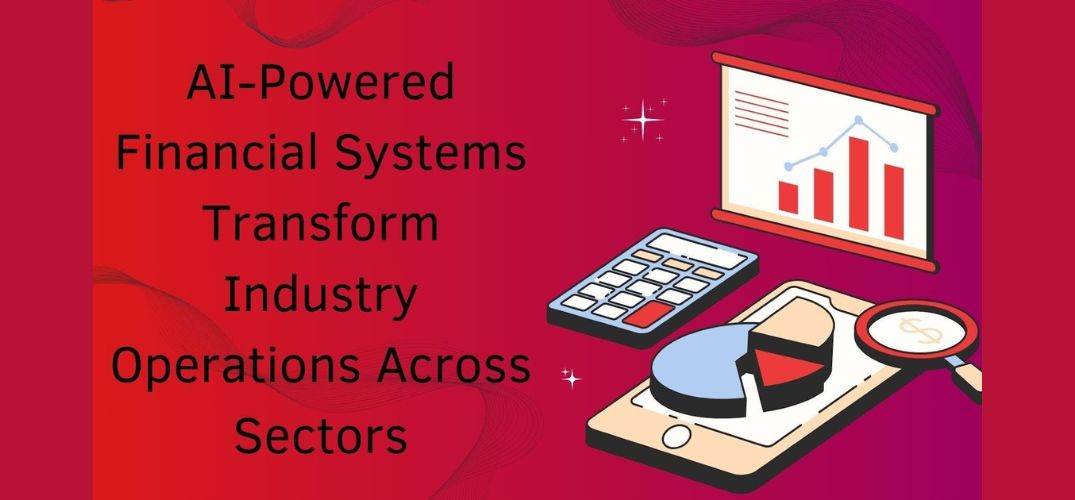As industries across the globe continue to evolve, one technology is driving a paradigm shift in how businesses manage financial operations—Artificial Intelligence (AI). The introduction of AI-powered financial systems is not just a passing trend; it is rapidly becoming a cornerstone of business strategy, reshaping the way organizations handle accounting, budgeting, forecasting, financial decision-making, and analysis across various sectors, AI is streamlining processes, enhancing decision-making, and unlocking unprecedented levels of efficiency.
A comprehensive study by technology researcher Poornachandar Pokala provides unprecedented insights into how artificial intelligence is revolutionizing financial management systems across Healthcare, Manufacturing, Oil & Gas, Automotive, Retail, and Scientific research sectors.
The Rise of AI in Financial Systems
In the past, managing finances in businesses was an often cumbersome, time-consuming process that relied heavily on manual entry, human judgment, and limited predictive capabilities. As organizations expanded, traditional financial systems struggled to keep up with the growing volume of transactions and complex financial landscapes.
Enter Artificial Intelligence. AI-powered financial systems utilize machine learning (ML), natural language processing (NLP), and predictive analytics to automate tasks that once required significant human intervention. These AI technologies enable systems to learn from historical data, identify patterns, and make accurate predictions that drive more informed, timely decisions.
AI in Financial Regulation and Compliance
AI is also playing a pivotal role in helping businesses stay compliant with increasingly complex regulatory standards. With regulatory changes happening frequently, especially in industries like finance, healthcare, manufacturing, Oil & Gas, Automotive, Retail, and Scientific research sectors, AI-driven tools can quickly scan documents, monitor changes in the law, and ensure companies remain compliant.
In the financial sector, regulatory technology powered by AI is being used to manage compliance tasks such as Know Your Customer (KYC) procedures, anti-money laundering (AML) checks, and reporting. AI’s ability to automate these processes helps firms minimize human error, and ensure real-time adherence to laws and regulations.
AI’s Impact on Financial Forecasting and Planning
AI-driven systems analyze historical financial data to project future trends and simulate different financial scenarios, helping organizations anticipate challenges and make more informed decisions.
These forecasting tools are invaluable for businesses making large-scale investments or planning long-term projects. By using AI to predict cash flows, costs, and potential delays, organizations can reduce financial risks, improve profitability, and optimize resource allocation.
Challenges and Considerations
For many organizations, transitioning from traditional financial systems to AI-integrated solutions can require significant investment in time and money. Moreover, data privacy and security concerns remain critical, especially in industries that handle sensitive financial data.
Furthermore, integrating AI into finance requires high-quality data. AI algorithms are only as effective as the data they process, which means that businesses need to ensure they are collecting and storing data properly. Cleaning and structuring data can be complex, particularly for organizations with legacy systems in place.
The Future of AI in Financial Systems
The future of AI in finance looks promising. As AI evolves, we can expect even more sophisticated tools that automate complex financial processes, provide deeper insights into financial data, and deliver more accurate forecasts.
Moreover, as AI technology becomes more accessible, small and mid-sized enterprises will benefit from these innovations, leveling the playing field between them and larger corporations. The democratization of AI-powered financial will open doors for businesses of all sizes to optimize their financial operations, reduce costs, and make smarter decisions.
Future Horizons
The research identifies promising areas including blockchain integration, advanced predictive analytics, and specialized AI-finance expertise development, expected to further transform financial management practices.
Industry-Specific Solutions
Healthcare organizations adopt phased approaches, prioritizing revenue cycle management. Manufacturing entities implement full-scale solutions simultaneously, while research institutions prefer module-based implementation focused on grant management.
In conclusion, as noted by Poornachandar Pokala in his findings, the successful implementation of AI in financial management depends on a delicate balance between technological sophistication and human expertise. The research provides a clear roadmap for organizations seeking to leverage AI capabilities while maintaining effective human oversight and industry-specific adaptations. The findings suggest that organizations embracing this technological transformation while maintaining focus on human-AI collaboration are best positioned for success in the evolving financial landscape.

































